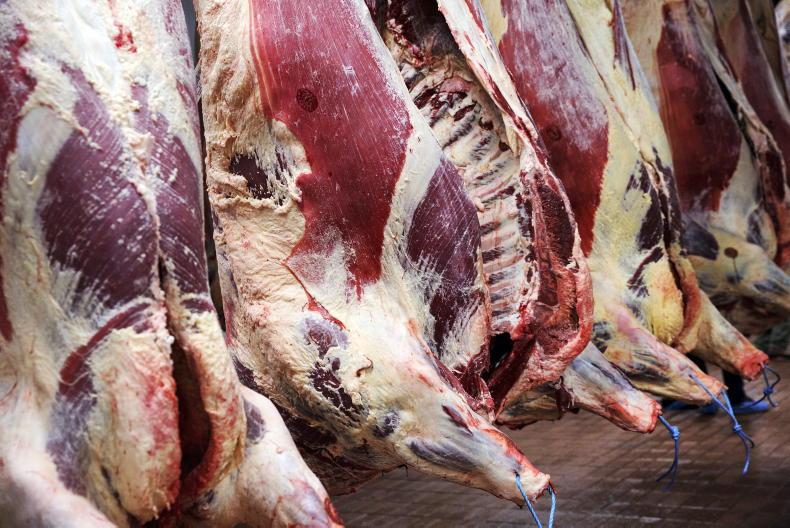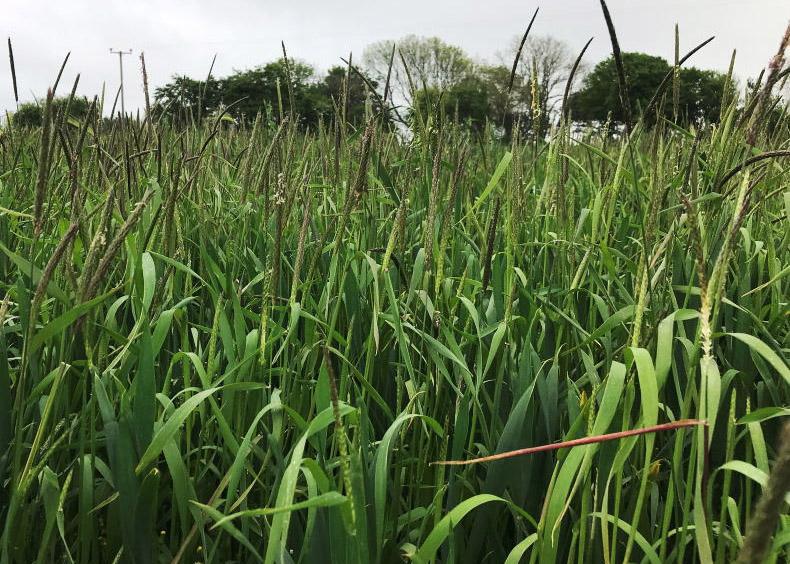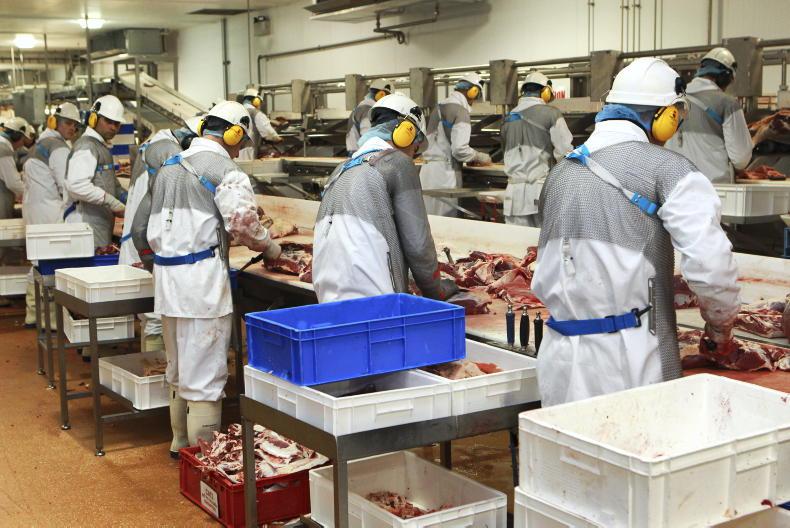The price farmers are getting for their beef and milk (at the moment) is very poor and it is really hard to see any way that we can make any money this year.
It is very easy to get depressed about the whole situation. Farmers are working harder than ever and getting less for what we produce.
This is not sustainable in the long term, and we cannot be cast aside in the stampede to save other industries. Food production will be the key to the recovery of our country when this situation is over.
While most of us are not going to be able to do much about it directly, the one thing that we can influence is what happens within our own farm gates. If we get caught up moaning and complaining, the result could be that we will take our eye off the ball.
In my opinion, May is the one month in the year that will decide how much money that you will make in the rest of the year (although this year it might be a case of reducing the amount that you lose).
If we get grassland management wrong in this month, then we have lost for the whole year. I would go as far as saying that if you get May wrong, you might as well write off the rest of the grazing year.
You might think that I am overstating it, and that there will always be time to make things up, but my experience suggests otherwise.
I am a firm believer in grassland management and the benefits of it. It is the one thing that has the potential to give farmers here a competitive advantage.
Past mistakes
I used to be of the opinion that I should be building up supplies of grass at this time of year to have enough through the summer months when grass does not grow as well. But what I was actually doing was compounding the issue.
During May, I was letting grass run to seed head. It became unpalatable and the cattle would not eat it and performance suffered. Often they wasted more than they consumed, and I had to go in and top the fields. This left the recovery even longer and meant I had no good grass again until August.
Great advice
An agricultural adviser told me a few years ago that whatever grass that you grow in May should be eaten in May. I think that this was some of the best advice that I have ever received.
Across the paddocks this month, it is like a battlefield for me – I am at war with the grass. I do all in my power to stop it running to seed head.
This means that I have to walk the paddocks regularly (not just look over the hedge), and be proactive and cut paddocks when they get out of control (this means cutting early before they run to seed-head).
I do not always get it right, and when I get it wrong, I feel very deflated because I know it will be next year before I get another chance.
I have the whole farm set out in paddocks and I measure grass with a plate meter. It is a great help, but I understand that they are not for everyone. The most important thing is to get out and walk the ground regularly and do not be afraid to take action.
I have been doing some form of grass measuring for over eight years and while I have a fair grasp of what is needed to manage cattle paddocks, the grazing allocated to the sheep is more difficult.
The system that I work for the cattle is three days in followed by a three-week rest. The aim is to go in at covers of 3,000kg dry matter per hectare (8cm to 10cm) and out at 1,500kg (around 4cm). There is some flexibility in this, and it works reasonably well here.
The sheep are harder because they need to go in and out at lower covers, as they are more likely to refuse to clean out stronger grass.
Comparison
It’s difficult to adjust from cattle to sheep, but the big problem is that there are so few sheep farmers using a paddock system, it’s nearly impossible to find someone to compare with. A lot of sheep farmers would rather set stock, and offer expensive creep feed to the lambs.
That might look like an easier option, but if you can get on top of grassland management this month, you can keep costs down and performance up for the rest of the season. The rewards will far outweigh the effort.
Read more
Watch: a spring first with a ring feeder
Farmer Writes: the heifer that was missed at calving
The price farmers are getting for their beef and milk (at the moment) is very poor and it is really hard to see any way that we can make any money this year.
It is very easy to get depressed about the whole situation. Farmers are working harder than ever and getting less for what we produce.
This is not sustainable in the long term, and we cannot be cast aside in the stampede to save other industries. Food production will be the key to the recovery of our country when this situation is over.
While most of us are not going to be able to do much about it directly, the one thing that we can influence is what happens within our own farm gates. If we get caught up moaning and complaining, the result could be that we will take our eye off the ball.
In my opinion, May is the one month in the year that will decide how much money that you will make in the rest of the year (although this year it might be a case of reducing the amount that you lose).
If we get grassland management wrong in this month, then we have lost for the whole year. I would go as far as saying that if you get May wrong, you might as well write off the rest of the grazing year.
You might think that I am overstating it, and that there will always be time to make things up, but my experience suggests otherwise.
I am a firm believer in grassland management and the benefits of it. It is the one thing that has the potential to give farmers here a competitive advantage.
Past mistakes
I used to be of the opinion that I should be building up supplies of grass at this time of year to have enough through the summer months when grass does not grow as well. But what I was actually doing was compounding the issue.
During May, I was letting grass run to seed head. It became unpalatable and the cattle would not eat it and performance suffered. Often they wasted more than they consumed, and I had to go in and top the fields. This left the recovery even longer and meant I had no good grass again until August.
Great advice
An agricultural adviser told me a few years ago that whatever grass that you grow in May should be eaten in May. I think that this was some of the best advice that I have ever received.
Across the paddocks this month, it is like a battlefield for me – I am at war with the grass. I do all in my power to stop it running to seed head.
This means that I have to walk the paddocks regularly (not just look over the hedge), and be proactive and cut paddocks when they get out of control (this means cutting early before they run to seed-head).
I do not always get it right, and when I get it wrong, I feel very deflated because I know it will be next year before I get another chance.
I have the whole farm set out in paddocks and I measure grass with a plate meter. It is a great help, but I understand that they are not for everyone. The most important thing is to get out and walk the ground regularly and do not be afraid to take action.
I have been doing some form of grass measuring for over eight years and while I have a fair grasp of what is needed to manage cattle paddocks, the grazing allocated to the sheep is more difficult.
The system that I work for the cattle is three days in followed by a three-week rest. The aim is to go in at covers of 3,000kg dry matter per hectare (8cm to 10cm) and out at 1,500kg (around 4cm). There is some flexibility in this, and it works reasonably well here.
The sheep are harder because they need to go in and out at lower covers, as they are more likely to refuse to clean out stronger grass.
Comparison
It’s difficult to adjust from cattle to sheep, but the big problem is that there are so few sheep farmers using a paddock system, it’s nearly impossible to find someone to compare with. A lot of sheep farmers would rather set stock, and offer expensive creep feed to the lambs.
That might look like an easier option, but if you can get on top of grassland management this month, you can keep costs down and performance up for the rest of the season. The rewards will far outweigh the effort.
Read more
Watch: a spring first with a ring feeder
Farmer Writes: the heifer that was missed at calving









SHARING OPTIONS